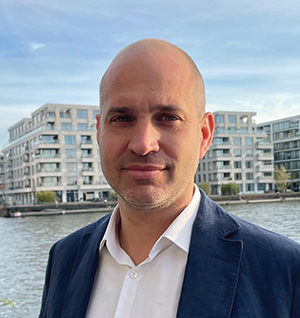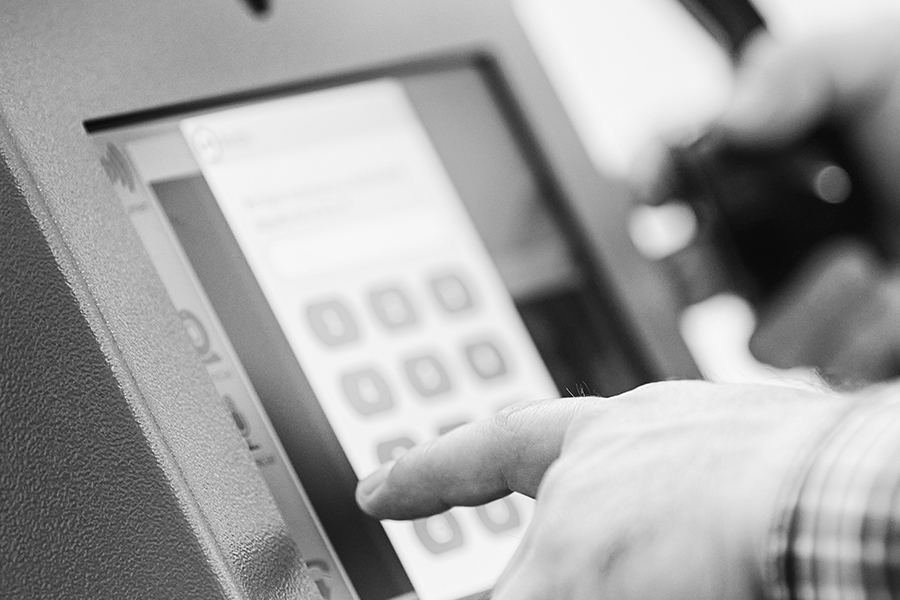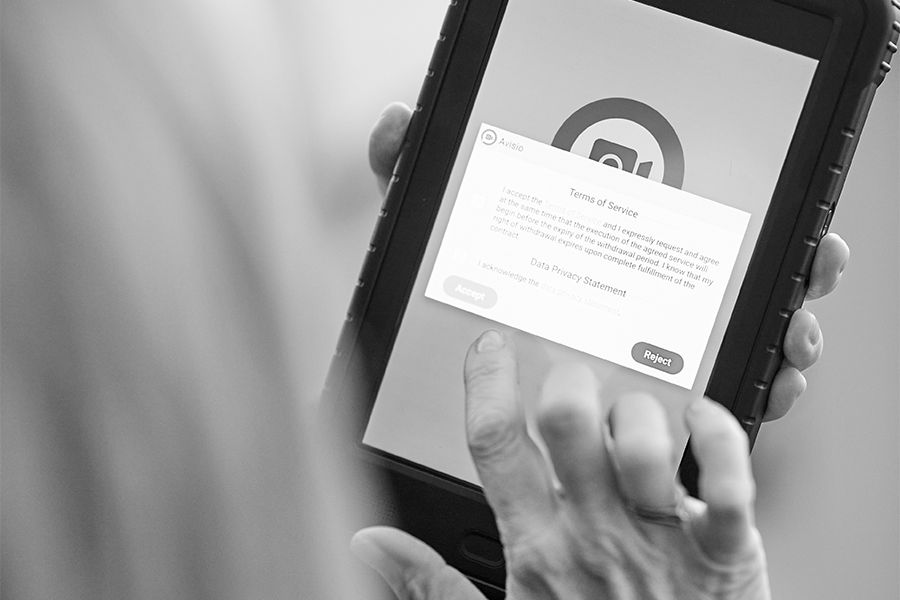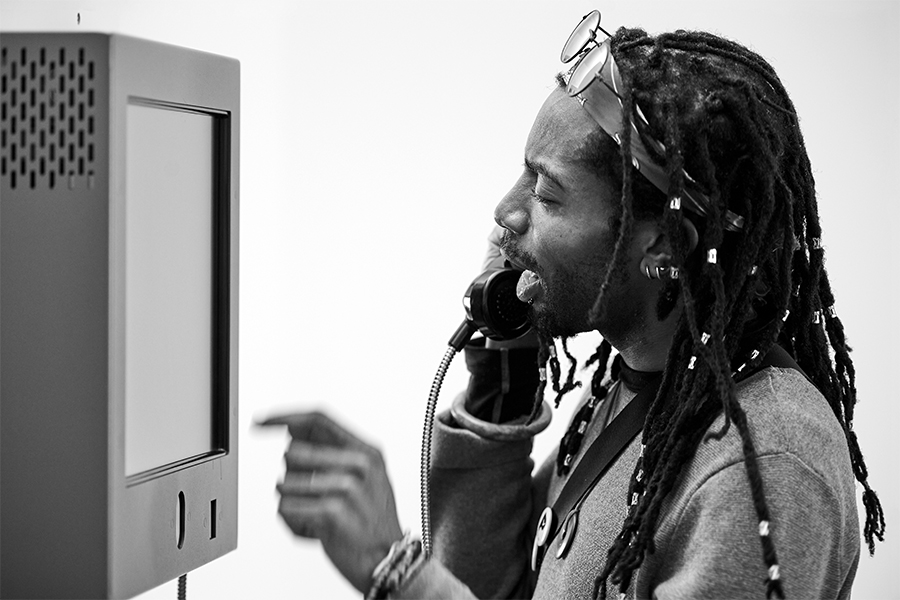Article
Dave Lageweg
Maintaining inmates’ social bonds is beneficial for all parties involved: prisoners stabilise their emotional health; custodial settings tend to be more peaceful when they allow inmates sufficient and regular contact with their family and loved ones; and, ultimately, communities become safer, more prosperous, inclusive and generally more robust because of the positive impact on rehabilitation as well as recidivism rates.
The topic is not new, and it is widely documented. But it deserves to remain on the agenda and be expanded considering the new forms of communication allowed to inmates across different jurisdictions.
The COVID-19 pandemic posed a challenge for prison services. The public health crisis has brought social distancing and other restrictions; therefore, most prison administrations worldwide have limited or suspended face-to-face visitation. Although video call utilisation had not been optimised by all jurisdictions pre-COVID, the pandemic significantly boosted this communication solution.
After providing Telio’s video telephony service to several correctional agencies in Europe, in 2021, we wanted to know more about how the inmates’ families and prison management perceived the advantages and impact of video calling. To this end, we commissioned a study to the BSAFE Lab of UBI University to understand the effect of video visits in prisons.
The French prisons where video-calling has been implemented served as a “case study”. The results point to a highly positive complementarity of video calls and many benefits for all the parties involved in the prison experience. A sample of family members took a survey on the perceived usefulness of video calls. The results speak for themselves.
The vast majority (75%) of the relatives who responded to the survey said that video calls allowed more frequent contact with the inmate. By comparison, voice calls do it too but almost 15% less!
All the respondents feel that regular video contact with their incarcerated loved ones reduced the inmate’s distress. Almost all family links (93%) consider that video calls instil a greater desire in the inmate to be released from prison as soon as possible to reunite with family. Moreover, 87% of inmate relatives believe that video calling allows the inmate to improve the management of their life in detention.
Traditional phone calls are only considered better for contact regularity between the inmate family and their lawyer. More than 60% said this versus 50% for video calling. The potential of integrating video in conjunction with traditional phone communication could further maximise the opportunity to contact loved ones and representatives, thereby optimising outcomes. Moreover, the research considered statistical data from the communication platform, namely data related to calls in more than 195 facilities across France.
At this level, there are several remarks: the video call system was gradually installed between January and July 2021; video calls were free until the end of June and started being charged in July; both video calls and traditional phone calls were available in parallel, and prison authorities gradually reintroduced face-to-face visits throughout 2021.
Concerning phone calls versus video calls, from data comparison, the research has found that between January and July 2021, the average duration of a typical phone call was approximately six minutes. This average duration more than doubled with the introduction of the video feature. Therefore, video calls have allowed more contact time between inmates and their loved ones.
When video calls began being charged, as of July 2021, the average duration of the calls per month for each user decreased by around 50 minutes. If until June the inmate had an average of about an hour and a half on video calls in total, per month, from July onwards, the monthly total came down to 40 minutes.
On the other hand, video calls to loved ones abroad increased even after being charged. In June 2021, 16% of video calls were for contacts abroad, while between July and September of that year, it rose to up to 22%.
Mr Patrick Gomez is the Director of Technological Programmes of the French Prison Administration.
In an interview conducted by the research team, he explains that video calls abroad tend to be cheaper than traditional phone calls. So, France now has frequent users among the prison population, who prefer to have video calls with their relatives abroad instead of standard phone calls.
The pandemic has accelerated video calling deployment in prisons, complementing traditional phone calls. Telio has supported different prison administrations to adapt and evolve the communications system they already had in operation – France is one of those success stories.
Telio’s system records all interactions regardless of a video or phone call. Hence, the prison authorities oversee and fully control all calls.
There is no specificity in video calls that could interfere with the process already in place for telephony. This is an advantage as the technology provider ensures the same information and communication security level in both types of calls.
Mr Gomez confirmed that “some staff immediately embraced the opportunity, others found it peculiar that inmates could do video calls. So, we had to ensure that it is a technology solution designed specifically for the prison environment, beneficial, and reliable.”
This is a critical point; the change management aspect needs particular focus to ensure the desired outcomes. The change involves the inmates and their contacts, and, at the same time, we must focus on staff so that they understand the benefits and secure buy-in.
These benefits include a safer and more secure work environment. We should also consider the management of in-person visits and security activities. These will reduce, and officers can then focus on higher-value work. Indeed, video visits alleviated the impact of in-person visitation suspension during the pandemic. The cut in face-to-face visits generated a lot of tension in prison facilities, mainly aimed at prison officers.
“This solution lightened the mood. In the end, everyone was happy. It has been a win-win strategy for inmates, their loved ones and prison staff”, highlighted the French system’s Director of Technological Programmes.
He believes that video calls are here to stay as a necessary improvement and complement to the traditional telephony. The path ahead will be to democratise the solution as much as possible, so that most detainees can benefit from the advantages of video calls.
“We have even seen the possibility for inmates to communicate with their children without them having to experience the secure detention environment of the premises. Additionally, in video calls, the inmate can witness the physical environment in which the loved ones are and live. For example, to see the family’s pets and familiar spatial details”. Such details can generate greater closeness, a greater sense of belonging and hope that can only benefit all who participate in the interaction.
Video calls offer a better quality of interaction when compared to voice calls. To a certain extent, they may have the power to make it up for the absence of face-to-face visits. In addition, it makes it possible to expand the number of social ties of inmates; there are people with whom they can maintain or strengthen relations with video calling without ever having a personal visit to the prison.
Video calls through Telio’s VISIO system are a new communication experience for everyone, both at home and in prison. For this and all the reasons mentioned above, like the Prison Administration in France, many other prison agencies are on the path of allowing secure video calls more and more to citizens in their care.
Will video calling become a new communications standard in prisons? At Telio, we genuinely believe so.



Dave Lageweg
As a Chief Business Officer, Dave Lageweg supports TELIO in its mission not only as a communications company but also as an essential digitalisation partner in the global correctional sector, with solutions from video calls/visits to digital services with self-service kiosks and tablets, to cell phone detection and jamming, to voice communications. Dave’s career began more than two decades ago with the Dutch Ministry of Justice and Security, and he has always been actively involved in supporting governments through technology. He has a degree in Information and Communication Technology from the Amsterdam University of Applied Sciences.





